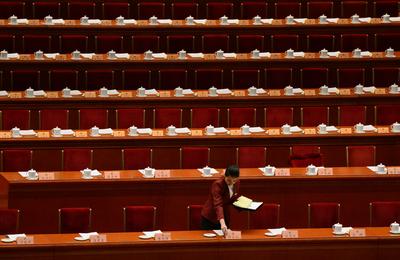(East Asia Forum) China’s rise has been the subject of a great deal of debate over the last two decades. Scholars and policy makers alike understand that China’s growing power is likely to have tremendous consequences for the world economy and politics. Yet China’s direct involvement in global governance has not received a lot of attention. Just how big a role has China had in global governance, and why? What should the international community do in response?
A close look at these questions indicates that despite its growing economic and military power, China has under-participated in global governance compared to other BRIC countries (Brazil, Russia and India). For instance, China contributes significantly less manpower than the other BRIC states to UN peacekeeping operations and staff positions. It also consistently ranks last in financial contributions to global governance initiatives and programs relative to its GNI per capita. Despite some significant contributions to the International Fund for Agricultural Development, China donates very little to other international funds dealing with drugs and crime, labour standards, global health, poverty and humanitarian relief. Finally, China has little presence in various civil society gatherings where new ideas and norms regarding global governance tend to emerge.
What accounts for China’s limited participation? There are serious supply-side limitations to China’s assumption of a bigger role in global governance. Firstly, the Chinese government faces serious challenges in domestic governance; its leadership is too preoccupied with maintaining domestic stability and legitimacy to spend much energy on global issues not immediately related to China. Secondly, both China’s government and society are ill prepared for its rapid rise, struggling to put forward propositions and plans commensurate with China’s new position in the international system. The challenge is further complicated by China’s multiple identities (for example, as both a victim of imperialism and a beneficiary of the current international order, and as both a developing country and an aspiring great power). Finally, civil society is relatively weak and underdeveloped in China. Although China has many NGOs, a large number of them are run by or dependent on the government and unable or unwilling to work closely with global civil society.
There are also demand-side conditions that have hampered China’s participation in global governance. In particular, the lukewarm attitude of the international community toward China has not encouraged China to assume a larger role in international affairs and governance. Recent polling data indicate that powerful stakeholders in the international system like the United States, Europe and Japan tend to have negative or ambivalent perceptions of China and its influence. Such views of China may be the result of China’s one-party political system and differing core values, and may reflect an element of underlying racism.
Overall, constraints on both the supply of, and demand for, Chinese contributions to global governance have led to China’s under-participation compared to its BRIC peers. Can and should leaders and policy makers in other countries do anything to change this state of affairs? It is in the interests of the United States and other stakeholders in the international system to see that China becomes embedded in the current international order and shares more of the burden of providing for global governance. The United States and others can encourage the growth of China’s civil society organisations by supporting partnerships between Chinese NGOs and civil society organisations in other parts of the world. International stakeholders can also try to create more demand for Chinese participation by embracing China more fully as a member of the international community. States could establish a precedent for Chinese participation and build trust by advocating further cooperation on the least contentious global governance issues, such as poverty reduction, where there are clear shared interests between China and the current system’s leaders. Finally, the individual leaders and policy makers of leading states in the international order should avoid using China-bashing rhetoric. While rhetoric demonising China may score political points at home, it undermines public opinion of China and reduces international demand for China to assume more responsibility in global governance.
Authors: Hongying Wang and Erik French. Hongying Wang is Associate Professor at the University of Waterloo and a PONARS Eurasia member. Erik French is a doctoral student at the Maxwell School of Citizenship and Public Affairs, Syracuse University.
See the post at East Asia Forum (an initiative of the East Asian Bureau of Economic Research)










